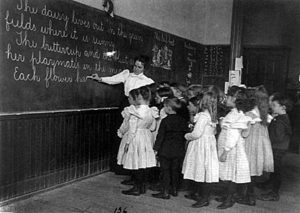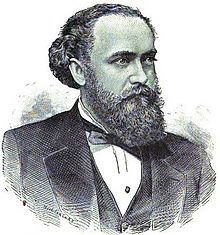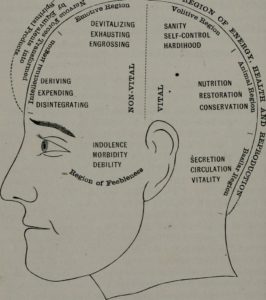
School Children in the Late 1800s, courtesy Aventa Learning
Alienists in the late 1800s believed that too much mental exertion could cause insanity, whether from over-studying at school, constantly dwelling on one topic, focusing too intently on business issues, or from other situations requiring unremitting thought (without adequate rest). This was one reason for the prevailing idea that children could become insane from intense schoolwork.
Dr. Ray V. Pierce, author of The People’s Common Sense Medical Adviser in Plain English: or Medicine Simplified (1886), explained: “No mental effort can be made without waste of nervous matter. The gardener’s hoe wears by use, and so does every part of the animal organism. Otherwise, nutrition would be unnecessary for the adult.
“The production of thought wears away the gray matter of the cerebrum as surely as the digging of a canal wears away the iron particles of the spade. . . . The intellect, whether engaged in observation, generalizations, or profound study consumes the brain and blood, hence intellectual activity implies VITAL EXPENDITURES.”

Dr. Ray V. Pierce
Pierce continued his explanation by saying that all the functions of the body were essential to the production of nerve-energy (including thought). Unlike exercise, which had value because it helped circulate blood, nutrition, and so on, mental labor did not have advantages of this kind. A child who studied too hard “consumes the blood, exhausts the vital forces, weakens, the organic functions . . . .”
The first result of all this expenditure would be anemia, said Pierce, because the brain “appropriated its red corpuscles” and eventually used them up. Because of this weakened state, other dire things could follow.

Image From Pierce’s Book
Though an obviously incorrect explanation concerning the issue of too much schoolwork, Pierce and many others correctly noted long ago the emotional problems in over-pressured children: An uptick in anxiety, depression, and lack of joy.*
*A 2016 survey showed that nearly one in three teenagers told the American Psychological Association that stress drove them to sadness or depression — and their single biggest source of stress was school.